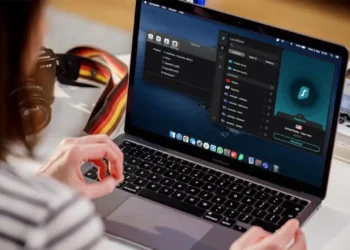The digital world can be a confusing place, especially when it comes to online privacy and accessing restricted content.
For beginners, terms like “VPN” and “proxy” may seem like tech jargon. However, they are essential tools that can help you stay safe online and access content otherwise unavailable. In this guide, we’ll simplify the concepts of VPNs and proxies to help beginners make the right choice for their online needs.
1 What Is a Proxy?
A proxy server is like a middleman between your device and the internet. When you connect to a website through a proxy, the website sees the IP address of the proxy server instead of your own. Here’s what you need to know:
Pros:
- Speed: Proxies are generally faster than VPNs because they don’t encrypt your data, making them ideal for tasks where speed is crucial.
- Access to Blocked Content: Proxies can help you bypass geo-restrictions and access region-specific content like streaming services and websites.
- Simple Setup: Proxies are easy to set up and use, making them beginner-friendly.
Cons:
- Limited Privacy: Proxies do not provide the same level of privacy as VPNs. Your data is not encrypted, and your online activities may not be fully anonymous.
- Security Concerns: Some proxies may log your online activities, potentially compromising your privacy.
2 What Is a VPN?
A Virtual Private Network (VPN) is a secure, encrypted tunnel between your device and a remote server. Your internet traffic is routed through this tunnel, providing privacy and security. Here’s what beginners should know:
Pros:
- Security and Privacy: VPNs offer robust security through encryption, protecting your data from potential threats and eavesdropping.
- Access to Restricted Content: VPNs can help you bypass geo-restrictions, allowing access to region-specific content like streaming libraries or websites.
- Anonymity: VPNs hide your IP address, making it challenging for anyone to trace your online activities back to you.
Cons:
- Cost: Many VPN services require a subscription fee.
- Potential Speed Impact: Due to the encryption process and routing through remote servers, VPNs can sometimes lead to slightly slower internet speeds.
3 Making the Right Choice for Beginners
Now that you understand the basics, let’s simplify the decision-making process:
- Choose a Proxy for Speed and Simple Tasks: If you’re primarily concerned with speed and want to access blocked content like region-specific websites or streaming services, a proxy is a beginner-friendly choice.
- Choose a VPN for Security and Privacy: If you prioritize online security, privacy, and want to access restricted content while keeping your data safe, a VPN is the recommended option, even if it comes with a potential speed trade-off.
In Summary
Both proxies and VPNs have their roles in the digital world. Proxies are great for beginners looking for speed and simple content access, while VPNs provide robust security and privacy. The choice ultimately depends on your priorities and what you aim to achieve online. As a beginner, it’s important to start with the tool that aligns best with your needs and gradually explore the world of online privacy and access.








